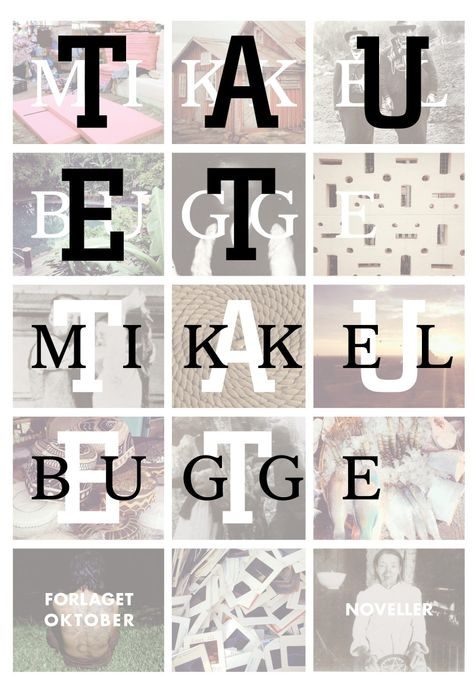The Rope
A woman smashes her skull and does all she can to prevent everything from pouring out. An artist reveals his innermost world in a barn in Steigen. A writer steals the story belonging to his closest colleague and becomes involved in a murder investigation. The Rope is a collection of short stories where reality cracks…
A woman smashes her skull and does all she can to prevent everything from pouring out. An artist reveals his innermost world in a barn in Steigen. A writer steals the story belonging to his closest colleague and becomes involved in a murder investigation.
The Rope is a collection of short stories where reality cracks and secrets are revealed. In Mikkel Bugge’s vital prose extraordinary meetings, dangerous displacements and fabulous landscapes occur.
Praise for The Rope:
“He forces us to read about what is harrowing, because he writes so well.”
Vårt Land
“The literary year has got off to a cracking start with Mikkel Bugge’s short story collection The Rope.”
Hamar Arbeiderblad
“He belongs in the upper echelons of Norwegian contemporary literature.”
 Telemarksavisa
Telemarksavisa
“Cunning and secretive short stories which coax the reader into a state of wonderment and admiration.”
Adresseavisen
“The Rope is a solid work of vigour, characterised by the same energy, the same wit and the same restless will to experiment as Perimeters (short stories, 2007) and Go Under Ground (novel 2010) … Bugge is the Norwegian author of my generation most likely to awaken my otherwise slow and indolent tendency for envy. But most of all I welcome a new text from Bugge with the kind of excited expectation belonging to the Christmas Eves of my childhood”
Klassekampen
“Bugge doesn’t run on schedule. Fortunately. The Rope is a collection of funny, strange, thought-evoking stories … Bugge’s playful approach to literature is extremely charming … The characters he writes out engage, so do the plots. Never predictable, always thought-evoking. With The Rope, he defends his place in the running for most interesting young Norwegian author”
Dagsavisen
“Substantial … the first literary highlight of the year … In his third book, Bugge can endure comparison to Herbjørnsrud as well as Askildsen … The literary year of 2014 starts off truly well.”
Bergens Tidende
“Bugge sets off his second collection of short stories with a bang that gives you a taste of blood in your mouth and an unease that stays throughout the book … Crime plots, self-ironic views on professional writers and depictions of growing up in a fisherman’s boathouse in the north of Norway are all written with the same power of conviction … It is impossible to know where Bugge’s short stories are going to go, but that makes the ride all the more fun … one of the most interesting voices of his generation”
Dagbladet
“Bugge’s characters move familiarly in all environments; a talent for observations and details colour most of the texts in this collection, in which the author’s main device is to start off in a recognisable situation where a conflict or crisis arises that increasingly takes a hold on the protagonist’s cognitive and emotional life and eventually takes the plot from a realistic level into the peculiar, the nightmarish, the weird. It has an appalling effect”
VG
“Bugge does something with his short stories that serves the genre well … So what is it Bugge does? To sum it up: He messes things up for people. A slightly longer version: He messes things up for people in style, not a classical style, but in a scruffy style, touching upon the gross, the enigmatic, the horrible and the absurd … The way that the reliable and the impossible stand side by side creates a vast room for interpretation for the reader to frolic in … The Rope is a great book”
NRK P2
“Reading Bugge’s third book is a joy … Bugge adds a good deal of mystifying, very physical, though sometimes surreally metaphorical touches that make the reader exceptionally impatient and bring nervous excitement to the pages. The reader is challenged and has to do his part; what is often called co-writing. It is stimulating … delightfully complicated and linguistically resilient”
Stavanger Aftenblad

